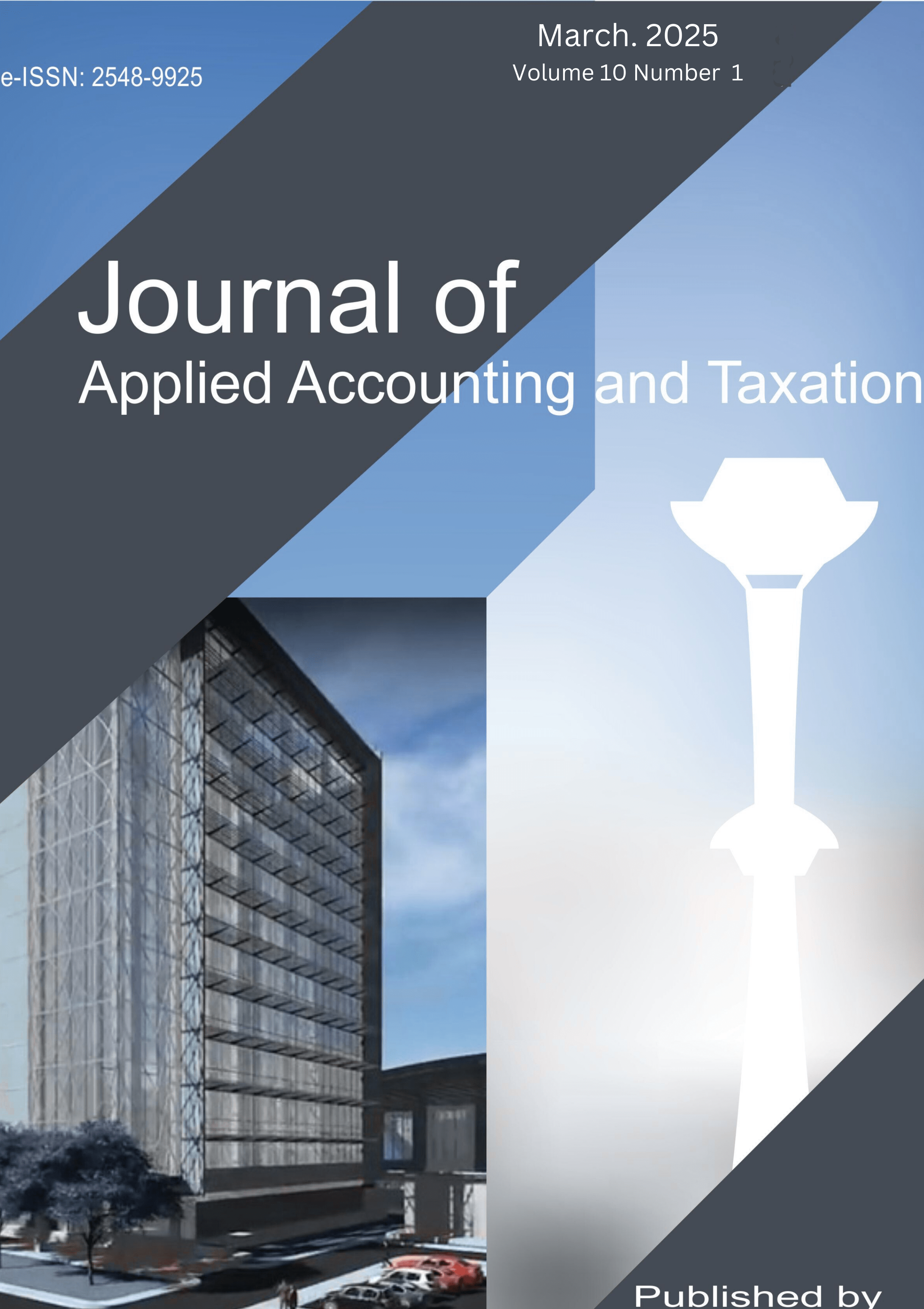Village Financial Ratio Analysis: Independence, Effectiveness, Efficiency, and Growth
DOI:
https://doi.org/10.30871/jaat.v10i1.9126Keywords:
APBDes, Effectiveness, Efficiency, Village Original Income, Village IndependenceAbstract
This study aims to analyze the financial performance of the Rutong State Government over the past five years. This study uses a descriptive quantitative approach with secondary data in the form of a report on the realization of the APBDes from 2019 to 2023. The data was analyzed using financial ratios which included effectiveness, efficiency, independence, and growth of the village's original income. The results show that the ratio of financial management effectiveness fluctuates, with most of the years in the category of less effective. The efficiency ratio shows improvement in recent years, although it has not been stable. The level of village financial independence is very low, with the dominance of transfer income in the village income structure. The growth of village real income shows a negative trend, indicating the need for a more sustainable strategy. The recommendations of this study are to optimize the original income of villages through the development of village-owned enterprises, the management of productive assets, and the improvement of village financial management capacity. The implications of the research can be a reference for the government in formulating strategic policies to support independence and sustainable village development based on empirical data
Downloads
Downloads
Published
How to Cite
Issue
Section
License
Copyright (c) 2025 Ardiansyah Ardiansyah, Maslan Abdin, M. Rizkoni Salis

This work is licensed under a Creative Commons Attribution-ShareAlike 4.0 International License.











